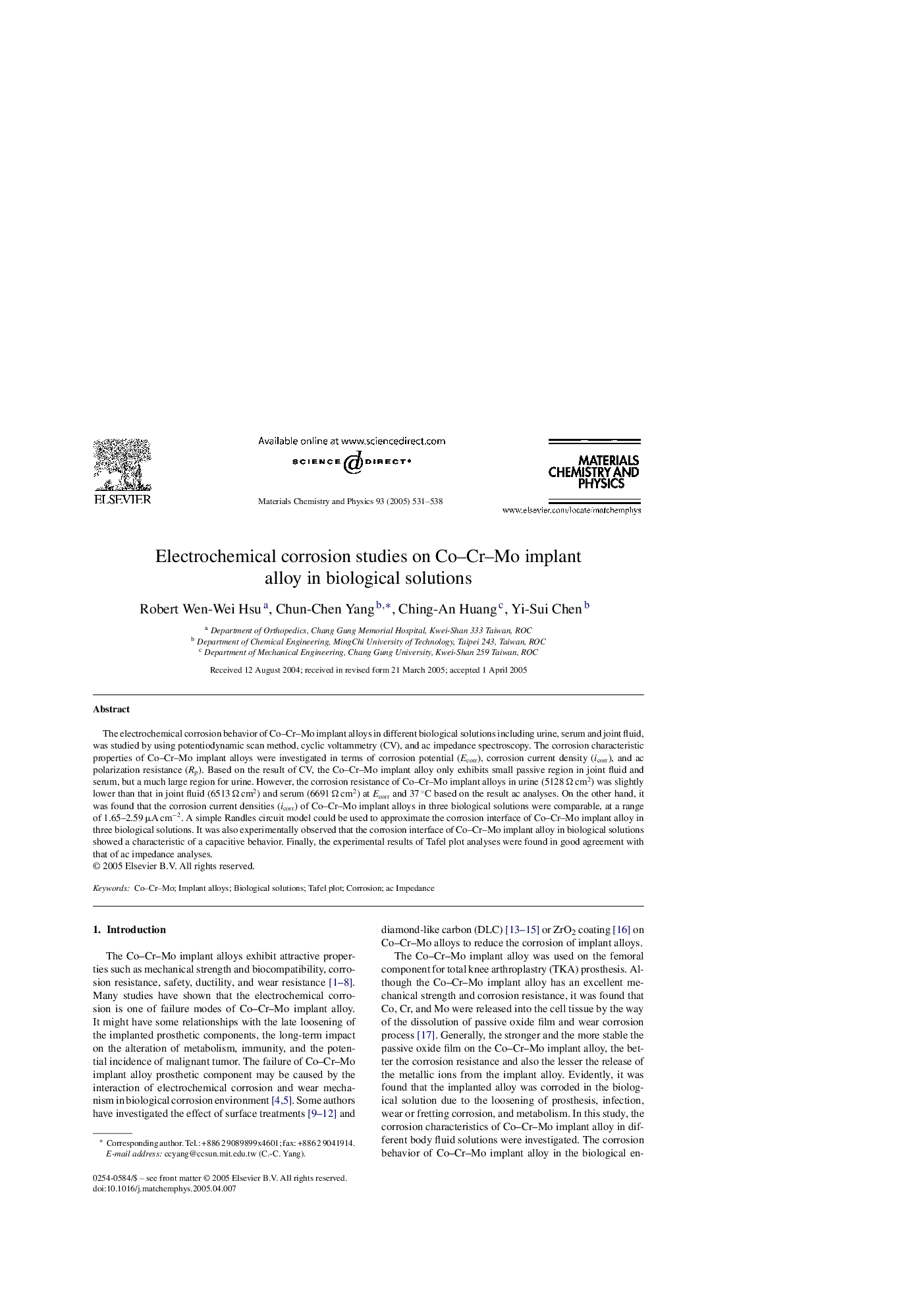| Article ID | Journal | Published Year | Pages | File Type |
|---|---|---|---|---|
| 9783022 | Materials Chemistry and Physics | 2005 | 8 Pages |
Abstract
The electrochemical corrosion behavior of Co-Cr-Mo implant alloys in different biological solutions including urine, serum and joint fluid, was studied by using potentiodynamic scan method, cyclic voltammetry (CV), and ac impedance spectroscopy. The corrosion characteristic properties of Co-Cr-Mo implant alloys were investigated in terms of corrosion potential (Ecorr), corrosion current density (icorr), and ac polarization resistance (Rp). Based on the result of CV, the Co-Cr-Mo implant alloy only exhibits small passive region in joint fluid and serum, but a much large region for urine. However, the corrosion resistance of Co-Cr-Mo implant alloys in urine (5128 Ω cm2) was slightly lower than that in joint fluid (6513 Ω cm2) and serum (6691 Ω cm2) at Ecorr and 37 °C based on the result ac analyses. On the other hand, it was found that the corrosion current densities (icorr) of Co-Cr-Mo implant alloys in three biological solutions were comparable, at a range of 1.65-2.59 μA cmâ2. A simple Randles circuit model could be used to approximate the corrosion interface of Co-Cr-Mo implant alloy in three biological solutions. It was also experimentally observed that the corrosion interface of Co-Cr-Mo implant alloy in biological solutions showed a characteristic of a capacitive behavior. Finally, the experimental results of Tafel plot analyses were found in good agreement with that of ac impedance analyses.
Keywords
Related Topics
Physical Sciences and Engineering
Materials Science
Electronic, Optical and Magnetic Materials
Authors
Robert Wen-Wei Hsu, Chun-Chen Yang, Ching-An Huang, Yi-Sui Chen,
